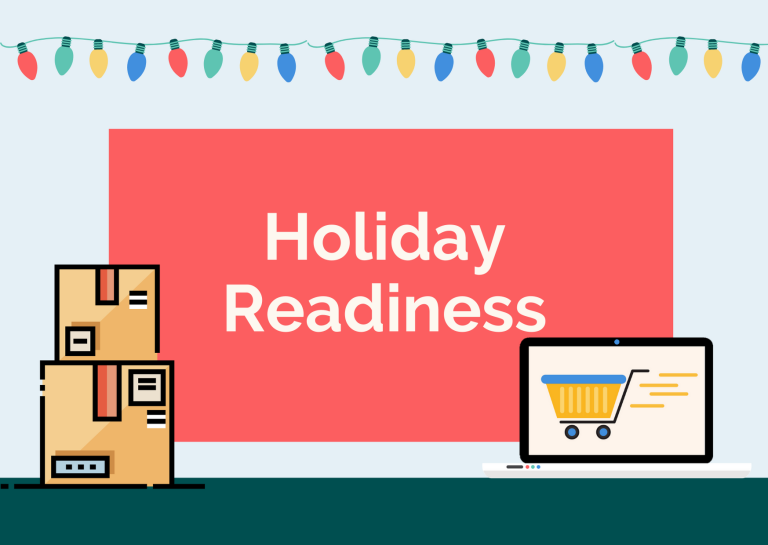Choosing the best ecommerce platforms for small businesses (Free & Paid) in 2022
Building an e-commerce website has never been easier. You don’t need to know anything about code or design to make one easily. All people have the opportunity to participate in digital sales to earn extra income, make their business idea come true of life, or build a business empire.
That is to say, it’s difficult to find an appropriate eCommerce platform to begin with – the one that is suitable for your budget level, and your needs and helps you grow rapidly.
In this article, we will analyze the best eCommerce platforms for small businesses, explore their pricing in-depth, and point out the most important things about each platform that you need to know.
Best eCommerce platforms for small businesses
1. Shopify
A brief:
- Price: Basic Shopify: It’s about $29.98/month; Shopify: $78,9/month; Advanced Shopify: About $300/month; discount: 10% on annual plans and 20% on biennial plans when paid upfront.
- Free trial: 14 days.
- Customer support: Phone support, email support, support offered in 19 languages, community forum, and support content.
- Integrating sales channels: Instagram, Facebook, Google, Walmart Marketplace, eBay, and Amazon.
- POS: Yes.

Shopify plays a role as one of the best eCommerce platforms for small businesses. Our comprehensive website builder comes with free tools and features to help you not only sell online, in-person, and through social commerce but also third-party marketplaces and dropshippers. Shopify lets you customize your store using any of over 100 paid or free themes – No need for coding knowledge.
Shopify also has functionalities for managing other areas of your business, not just small business eCommerce. You absolutely can build a complete business hub with our industry-leading suite of business tools. Shop Pay offers affordable online transaction fees, Shopify POS offers in-person selling, and Shopify Fulfillment helps you fulfill orders. There are competitive shipping rates from USPS, UPS, DHL Express, and other shipping carriers for Shopify users. The platform offers unlimited bandwidth and online storage space, so your prices won’t go up as your website traffic and sales grow.
Shopify also delivers free email marketing services, abandoned cart recovery, optimized search engine (SEO), and more native tools for business owners. Shopify’s mobile apps are so powerful that you can manage your store from your phone and use features to fulfill orders, add products, make real-time sales and inventory updates, and more. Missing features? There is an extensive library of over 6,000 third-party apps that you can use to further extend the functionality of your website.
Shopify allows you to set up a beautiful eCommerce store without knowing how to code, design, or do anything technical online. If you’d like to see an example of an online store built using the Shopify eCommerce platform, please see below:…….
2. BigCommerce
A brief:
- Price: Standard: About from $29.9/month to $299.95/month Enterprise custom pricing. ( Standard: $29.95/month – for annual revenues of up to $50k; Plus: $79.9/month – for annual revenues of up to $200k; Pro: $299.95/month – for annual revenues of up to $450k)
- Free trial: 15 days.
- Customer support: 24/7 technical support through phone, e-mail, or others.
- Integrating sales channels: Facebook, Google Shopping, price comparison engines, Amazon, eBay, Walmart, and Instagram.
- Point-of-sale: Yes.

BigCommerce is a great choice for anyone, whether you’re starting a new business or migrating an existing business. it’s perfect for all company sizes.
The price of Bigcommerce is on par with other eCommerce options and you get enough features to fit your money. In addition, BigCommerce’s 15-day free trial lets you browse before you commit. From the beginning, BigCommerce wants to ensure that you are comfortable and efficient in getting set up.
3.WooCommerce
A brief:
- Price: Average monthly fee is up to nearly $30,1; WooCommerce estimates costs to be $125/year for hosting, $15,5/year for domain name registration, up to $99,9/year for your site theme, up to $110/year for shipping, 2.89% plus 29.9¢ per sale, up to $350/year for marketing and communications, up to $79,5/year for SEO, up to $65,5/year for SSL certificate.
- Free trial: None, but it provides a 30-day money-back guarantee.
- Customer support: Live chat or email; no support offered for third-party apps and plug-ins.
- Integrating sales channels: Google Shopping, Facebook, Etsy, eBay, Amazon, Pinterest, and Walmart; there are disjointed integrations
- Point-of-sale: Native POS available.
WooCommerce is the e-commerce solution that attracts the attention of businesses around the world. Not only is it incredibly accessible and easy to use, but also is it created by the WordPress content management system. This is the software that has responsibility for running the majority of the Internet. WooCommerce is built on top of such popular content management systems, so it’s easy to get help and guidance when using it to build your online store.
Like other plugins for WordPress blogs, WooCommerce can be easily connected to your existing WordPress site. The system also comes with a number of great official extensions that make running your website a little easier. For example, you can choose from our storefront’s advanced themes, or play with our dropshipping tools. WooCommerce is open source, so it’s very flexible. However, it requires a lot more technical knowledge to get started.
One particularly useful feature of WooCommerce is that it comes with built-in blogging and the option to receive unlimited orders, unlike many other eCommerce platforms available on the web today.
4. Magento
A brief:
- Trial: No
- Price: from about $15 per month
- Magento has more than 3,000+ extensions and various themes

Adobe made a name for itself in the e-commerce world with Magento, a large-scale solution with a price tag for large organizations. This can be overwhelming financially and scale-wise for a small business. However, Magento offers well worth the investment if you have the capital for your company. You can get lots of benefits for your buck with Magento.
Being an open-source platform, it lets programmers modify the source code. Therefore, you can change every part of your eCommerce website, from speed and theme to extensions and inventory systems.
Besides, Magento also offers many features you may not have thought you needed such as seeing the future state of your website and setting different gateways based on B2C and B2B sales. B2B customers can also dial down multi-user permissions to the granularity and also negotiate and submit offers.
Magento requests you to connect to a rep, and they will offer you an individual quote based on your needs. As mentioned, that estimate is a little high, but if you’re in a large business, the well-thought-out set of features makes for a top-notch eCommerce experience.
5. Wix
A brief:
- Price: Business Basic: About $23,5/month; Business Unlimited: About $27,5/month; Business VIP: About $49,5/month.
- Free trial: No trial.
- Customer support: Call phone support available 24/7.
- Integrating sales channels: Instagram & Facebook require the third-party app Ecwid.
- Point-of-sale: Yes.

Wix is one of the best options for eCommerce stores when it comes to cost-effectiveness and performance. It gives you full creative control over your website. With a drag-and-drop store builder, hundreds of templates, and mobile-friendly performance, there’s a lot packed into the eCommerce plans you get with it.
You can choose from a variety of payment solutions and secure checkout systems. Moreover, you’ll have the opportunity to create engaging product galleries with your in-depth store management tools. Another good thing is that you have the option to calculate global taxes and shipping costs on your back end as well. Unfortunately, It doesn’t have as many shopping features as Shopify, but that’s to be expected from a site that isn’t entirely focused on eCommerce
Wix is a user-friendly and easy-to-navigate store builder. It does a great job for small businesses because it’s streamlined & intuitively customizable, and almost anyone can do it. However, For large businesses large, inventory levels can cause backend load lag, so it’s not recommended for large enterprises.
Conclusion
The best eCommerce platform is different for each small business. To decide which website builder option you’re going to use for your small business, you have to define your needs first. This article shows you some options to refer to. Now you can choose a suitable eCommerce platform for your business.
If you want to learn more about this, contact us. At ONEXT DIGITAL, we offer full-service web development, we are always ready to advise you to get a great choice for your business. We are firm that we’ll be your excellent partner in making your goals come true.






